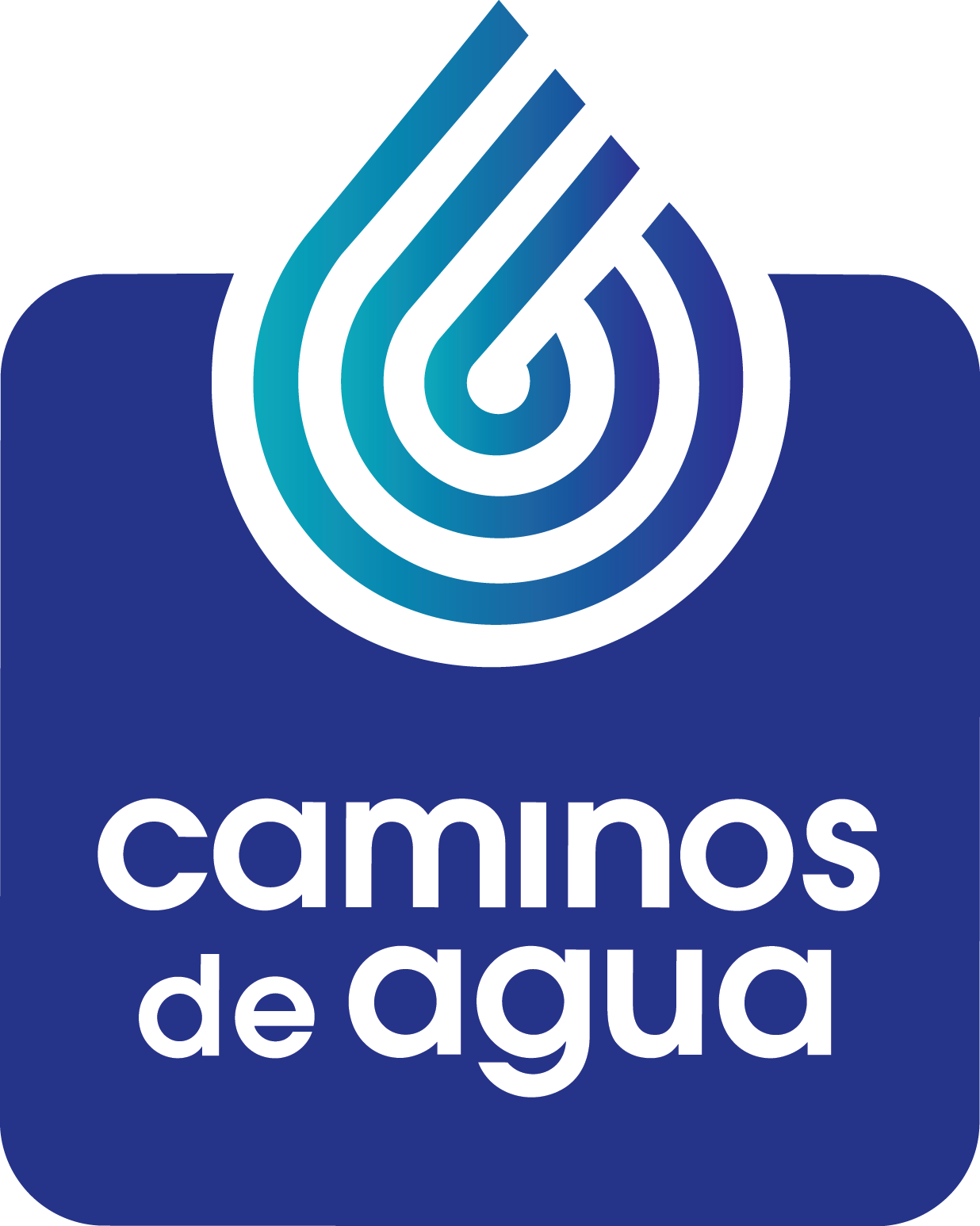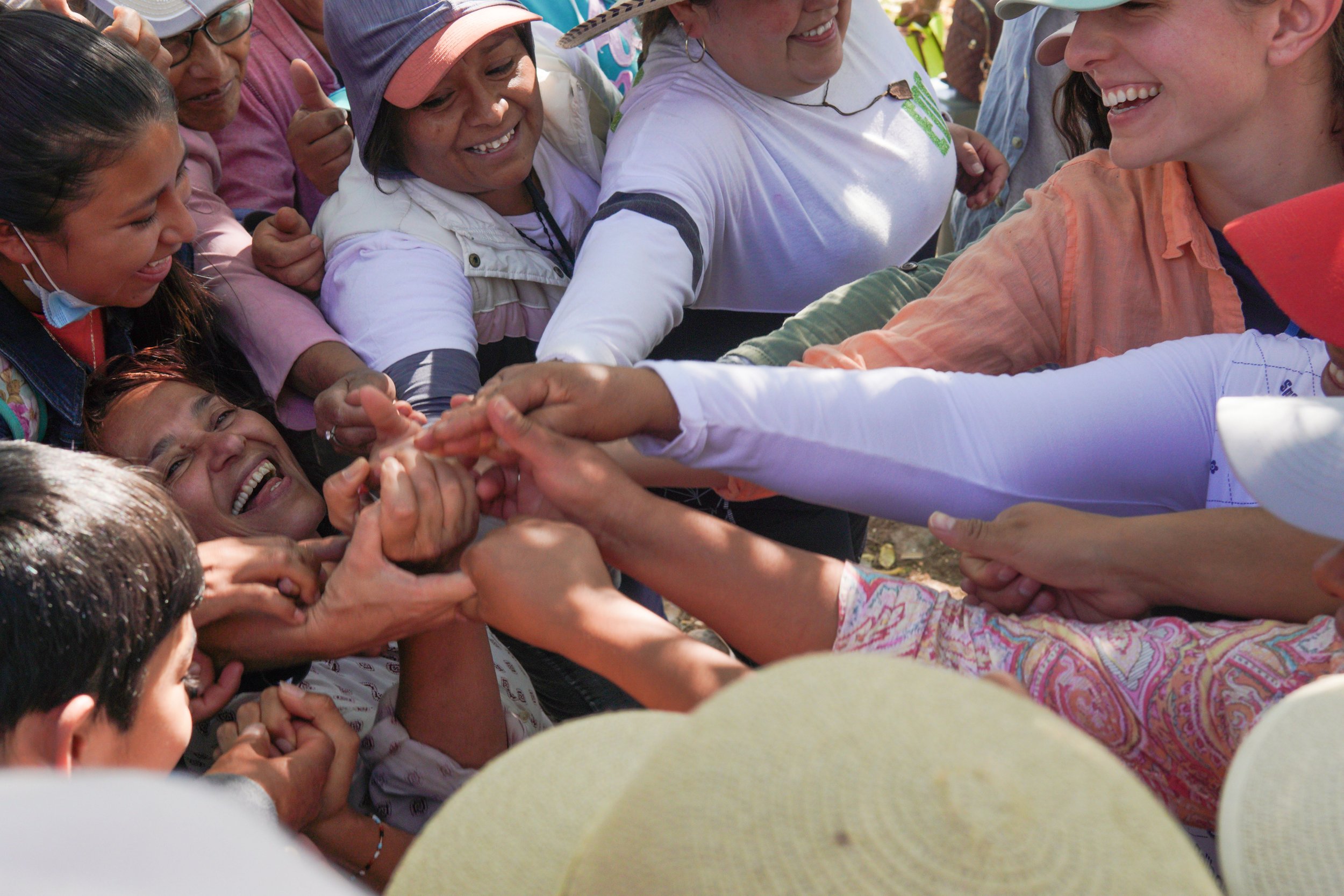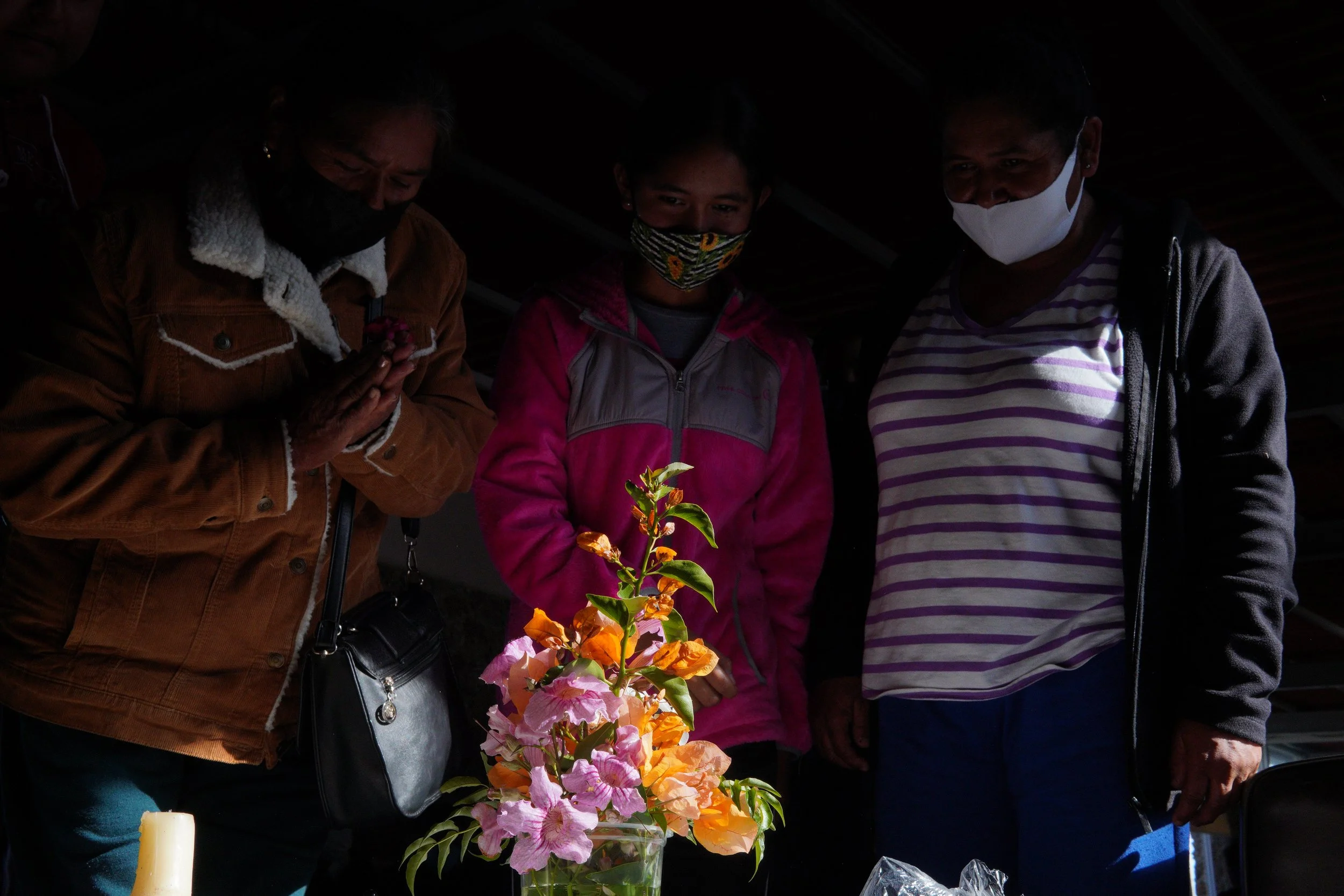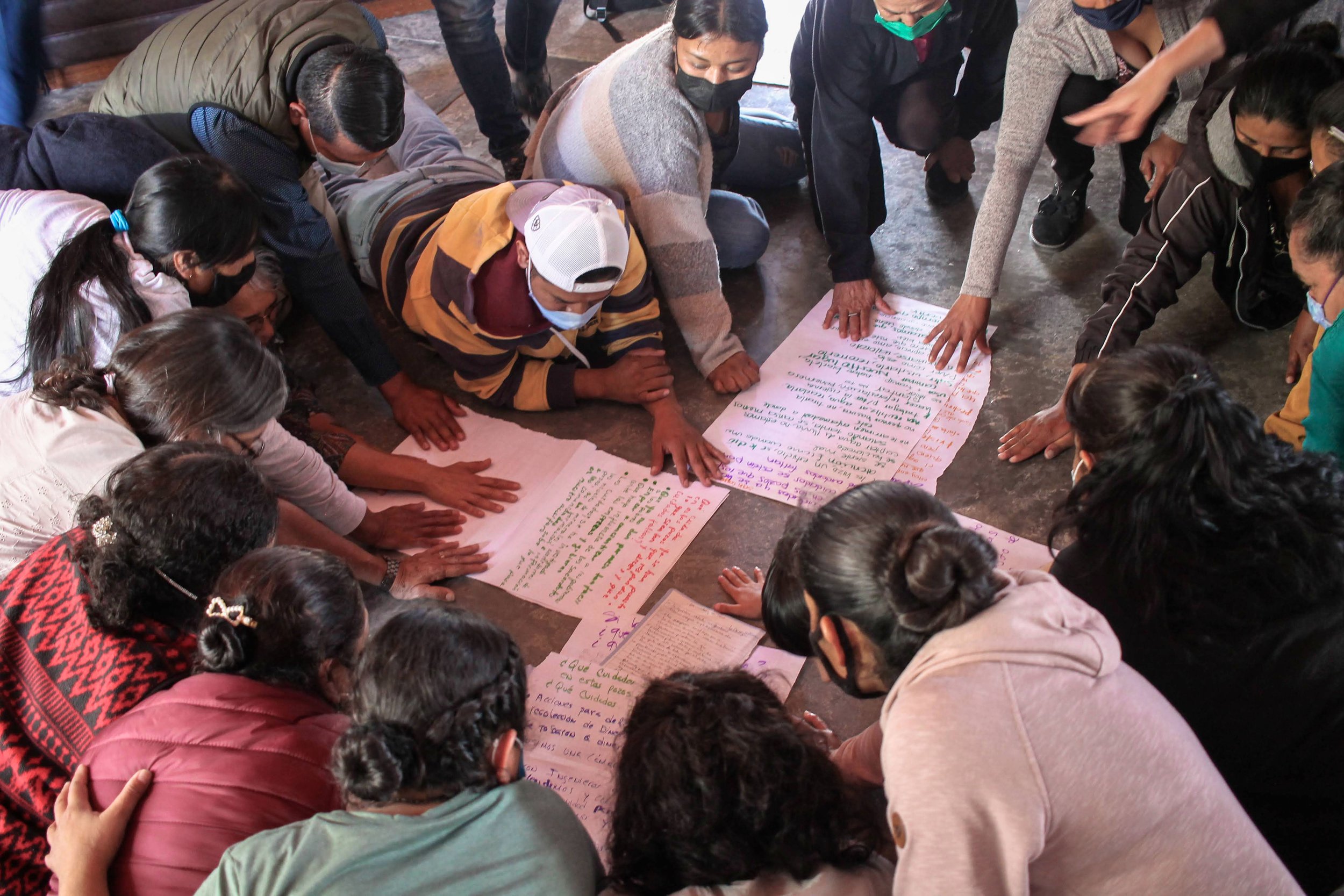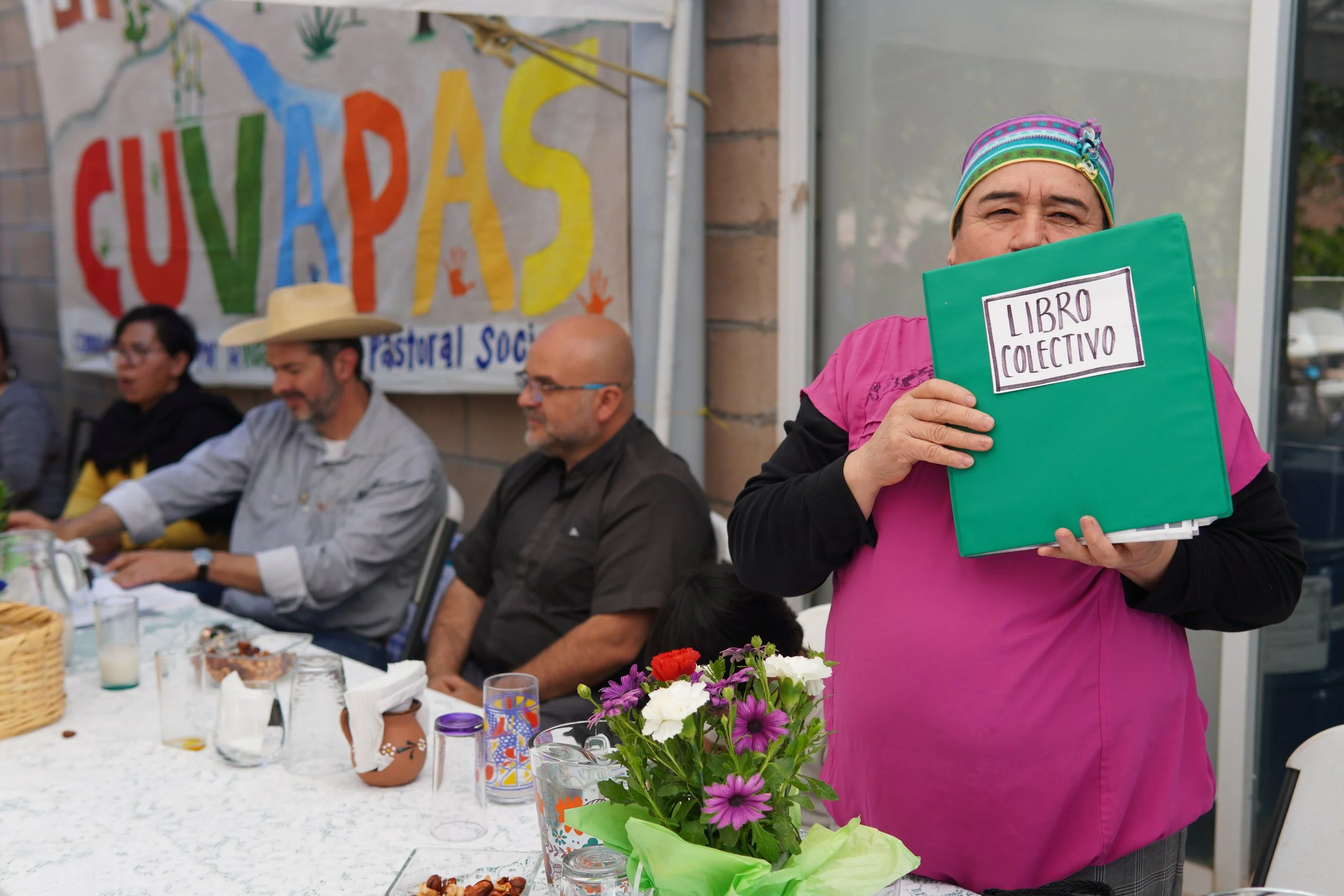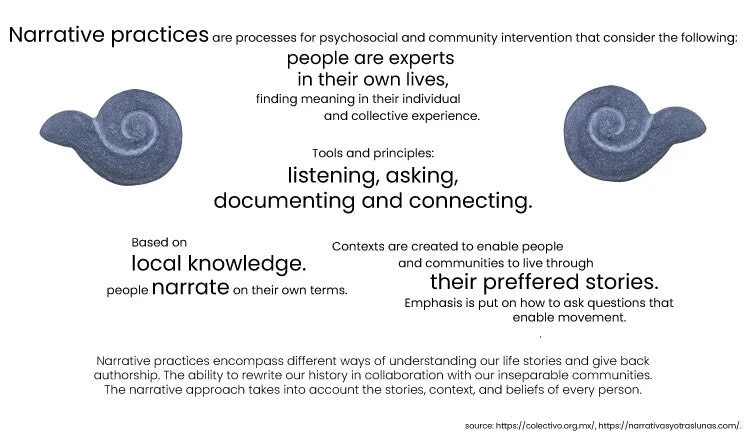Watershed and Hope: a Water Learning Community
The intention of this text is to tell you about the collaborative work we have undertaken with the Water Learning Community (WLC) for the Water and Health project, which is the result of the collaboration between Caminos de Agua and INANA a.c.
This community will be active for the span of the 3 year project and will meet every 3 months. The WLC is part of the educational strategy of the project — its approach is based on local knowledge, exchange, and dialogue. The WLC, symbolically, creates a basin— a collective, interconnected space to pause and reflect on our experiences, to listen to each other narrating what's happening, and to name these experiences in our own terms to create meaning from them. To make sense of the individual and collective actions.
This space is built upon the principles of Narrative Practices, which supports certain methods of asking, listening, documenting and connecting. Listening to ourselves and reflecting in this way allows us to focus on what is relevant to people; by asking questions about one’s own knowledge we are linking events and experiences that agree with what is important to each individual. We propose questions that invite the recount of experiences. We look for the principles, desires, commitments, beliefs, dreams, intentions and values that community members share.
What's holding you back in this work? How do you connect with what is important to you in life?
“...it is like generating several mounds of stories that gradually turn into mountains. They become visible in the landscape, they are mountain-stories that were not visible before and now, they become visible in the territory of the lives of the people and also in the path that leads us to them. I think a lot of what our work is about is making things visible, that’s what stories do... [1]”
This reflection space to narrate is like "making eagle flights in the territory and time of the basin". It also invites us to remember and name the people who are no longer there, and who have been part of these dreams and actions, so that they can be recognized by younger people and woven into the collective narratives. We say that what we are doing is re-authorship, strengthening stories of the knowledge of people and collectives. We are telling mountain stories, making things visible in the territory that they were not visible before, "...so that the community can then be at the top of the idea they want (a summit), assume the position of altitude and be able to see where they want to take their actions, but this position is only possible by creating this mountain story. This experience of agency is about the community being at the wheel instead of the problem being at the wheel, the community being able to see where they want to take their future. For that, the community needs to know where it wants to take it and why it is important…” [2]
A robust mountain-history is built by a great base of actions, of the accounts of the actions that are linked to their meanings, as a weave of collective words full of the way of saying, of the way of naming that each person has.
What have we done to respond to water problems, understanding that today's rainwater harvesting systems and dry toilets are the last link in a chain of actions?
At each WLC meeting, we make documents (text and audio) by weaving the words back into the collectives. A loom of words to resonate, to strengthen, to remember. This is how the "Custodians of Memory and Hope" were born: a common story that begins its journey, the result of the harvest of the first WLC meeting.
Each meeting will facilitate this reflection, this distance to see each other, to see the watershed also as a network of stories, a territory in dispute where stories of hope are also disputed.
Author: Raquel Zepeda
Narrative Practitioner, Founder of INANA a.c.
[1] Maggie Carey. Apuntes de taller. Maestría de prácticas narrativas para la educación y el trabajo comunitario 2016. Ucired y Colectivo de prácticas narrativas www.colectivo.org.mx
[2] Ibidem..”M, Carey”
HERE, you can look at the WLC that has been taking place to date.
